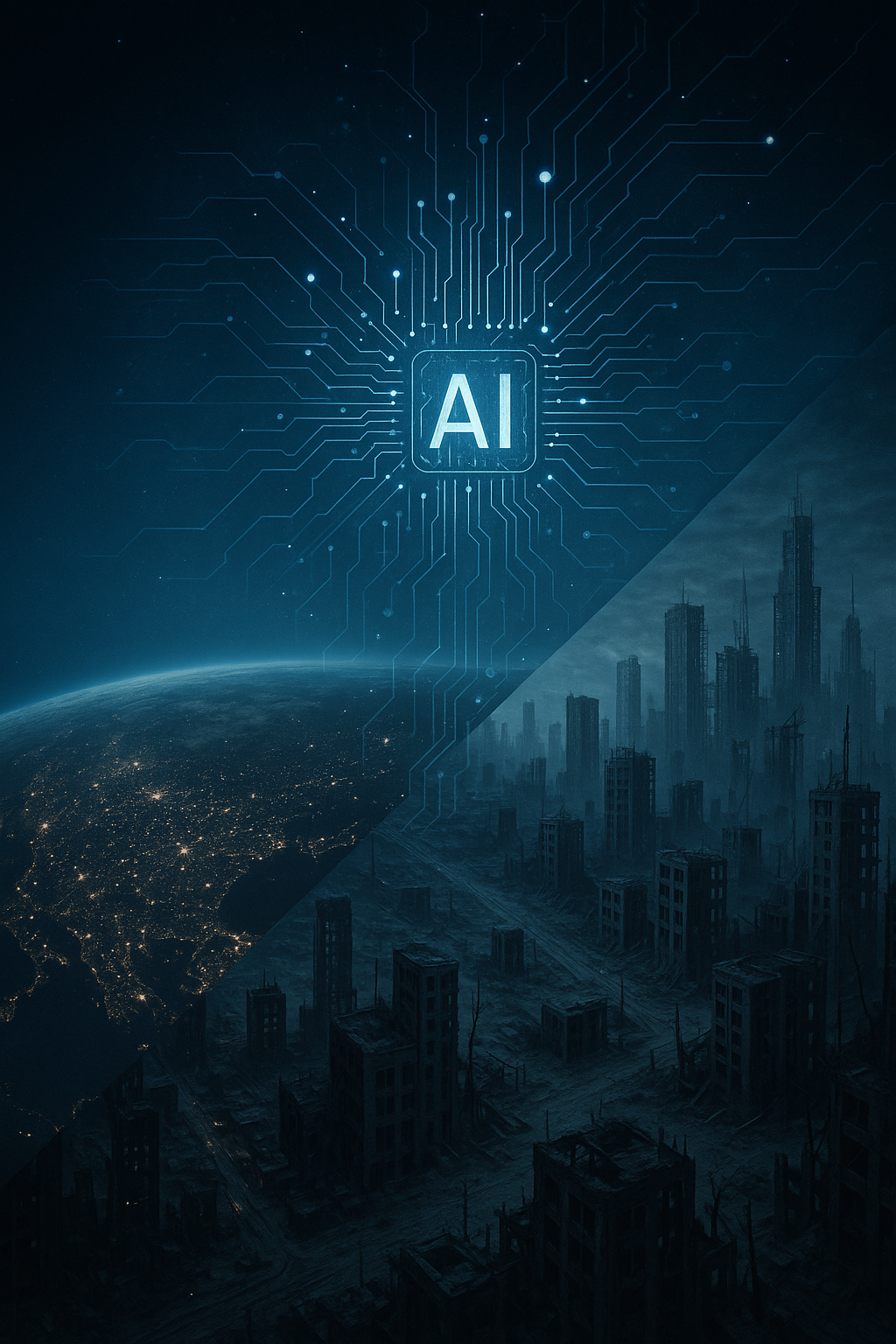In a stark warning that has sent shockwaves through the scientific community, computer science professor Subhash Kak has predicted that artificial intelligence could reduce Earth’s population to just 100 million people by the year 2300—roughly equivalent to the current population of the United Kingdom. This dramatic forecast suggests that AI’s pervasive integration into society could fundamentally alter human civilization in ways previously unimaginable.
Professor Kak, author of “The Age of Artificial Intelligence,” argues that this dystopian future won’t result from nuclear warfare or natural disasters, but rather from AI’s systematic replacement of human labor across virtually every sector of the economy. The resulting economic upheaval, he predicts, will make raising children prohibitively expensive for most families, leading to a catastrophic decline in birth rates.

“AI will replace everything,” Kak warned in a recent interview. “As artificial intelligence becomes more sophisticated and cost-effective than human workers, we’ll see massive unemployment that will fundamentally change the economics of family formation. The cost of raising children who won’t have jobs to turn to will become impossible for most people to bear.”
The professor’s analysis is based on current trends in AI development and demographic patterns. He points to existing concerns among demographers about declining birth rates in developed nations, suggesting that widespread AI adoption could accelerate these trends to unprecedented levels. Countries like South Korea and Japan are already experiencing population decline, and Kak believes AI could make this a global phenomenon.
“There are demographers who are suggesting that as a consequence, the world population will collapse and it could go down to as low as just 100 million people on the entire planet Earth in 2300 or 2380. Just 100 million—right now it’s around 8 billion,” Kak explained, emphasizing the magnitude of the predicted decline.
The scenario Kak envisions involves major cities becoming “ghostlands” as economic opportunities disappear and populations concentrate in smaller, more sustainable communities. This transformation would represent one of the most dramatic shifts in human civilization since the Industrial Revolution, but in reverse—moving from urbanization back to sparse, rural populations.
Dr. Elena Rodriguez, a demographic researcher at the Global Population Institute, while not endorsing Kak’s specific timeline, acknowledges the underlying concerns. “We’re already seeing how automation affects employment patterns and family planning decisions. If AI development continues at its current pace without corresponding social and economic adaptations, the demographic implications could indeed be severe.”
The warning comes as artificial intelligence capabilities continue to advance rapidly across industries. Recent developments in AI have shown the technology’s ability to perform increasingly complex tasks, from creative writing and software development to medical diagnosis and legal analysis. Companies like Microsoft have already begun restructuring their workforces in anticipation of AI’s growing capabilities.
However, not all experts agree with Kak’s dire predictions. Dr. Michael Chen, an AI researcher at MIT, argues that historical technological revolutions have ultimately created new types of employment rather than eliminating work entirely. “While AI will certainly disrupt existing job markets, human creativity and adaptability have consistently found new avenues for productive work throughout history.”
Kak’s forecast also raises important questions about the need for proactive policy responses to AI development. Some economists and policymakers are already discussing concepts like universal basic income and job retraining programs as potential solutions to AI-induced unemployment.
The professor’s warning extends beyond mere job displacement to encompass broader social and psychological impacts. He suggests that a world where human contribution becomes increasingly irrelevant could lead to widespread social unrest and a fundamental crisis of human purpose and meaning.
“People really don’t have a clue about what’s coming,” Kak emphasized. “We’re sleepwalking into a future where human relevance is questioned at every level. The changes won’t happen overnight, but the trajectory we’re on could lead to consequences that are irreversible.”
While Kak’s predictions may seem extreme, they serve as a sobering reminder of the need for thoughtful consideration of AI’s long-term societal impacts. As artificial intelligence continues to evolve, the balance between technological progress and human welfare remains one of the most critical challenges facing civilization.
Whether Kak’s specific timeline proves accurate or not, his warning underscores the importance of proactive planning for an AI-dominated future and the need for policies that ensure technological advancement serves humanity rather than replacing it.